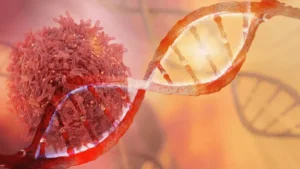Difference Between Addiction and Dependence
Addiction is a chronic condition, meaning it tends to persist over time and requires ongoing management. Hence, debunking common misconceptions about addiction can be helpful in understanding the condition better and addressing it effectively. Addiction and dependence share similarities but are two different experiences. Addiction indicates a marked behavioral change consequent to neurochemical changes in the brain from continued substance use.
- Once you’ve been addicted to a drug, you’re at high risk of falling back into a pattern of addiction.
- We believe everyone deserves access to accurate, unbiased information about mental health and addiction.
Can someone be dependent on a substance without having addiction?
But when people withdraw from these medications, they do not crave them and once successfully tapered, they do not have recurrent use. In contrast, craving and recurrent use are common symptoms of addiction, particularly during early stages of recovery. According to the DSM-5, it is possible to meet diagnostic criteria for a substance use disorder without having tolerance and withdrawal symptoms.
Changes in the brain
Read here to learn more about social media addiction, the risk factors, digital detox, and other treatment options. Although doctors do not generally consider antidepressants to be addictive, they note that some individuals may develop physical dependence on them. If the person abruptly stops the antidepressant they are taking, it could cause withdrawal symptoms. This can often occur when the person requires long-term pain medications for chronic pain. These individuals may become dependent on pain medications to function, but they may not have an addiction to pain medication. The sooner you seek help, the greater your chances for a long-term recovery.
- Treatment providers can help you understand your substance use disorder and provide a combination of therapy and medication to minimize symptoms and promote well-being.
- We strive to create content that is clear, concise, and easy to understand.
- Your healthcare provider will determine whether your symptoms match the criteria for substance use disorder listed in the DSM-5.
- The effects of these drugs can be dangerous and unpredictable, as there is no quality control and some ingredients may not be known.
- When addiction is related to drugs or alcohol, the condition is also called a substance use disorder.
What can I expect if I have tobacco use disorder?
While addiction refers to a compulsive and harmful pattern of substance use or behavior, dependence is characterized by physical or psychological reliance on a substance or behavior. The difference between addiction and dependence lies in the underlying mechanisms and manifestations of these conditions. By untangling the complexities addiction vs dependence of addiction and dependence, we can foster a better understanding of these conditions and promote empathy and support for those affected by substance use disorders. Distinguishing between alcohol or drug dependence and addiction is essential for informed discussions about substance use and prescribed medication alike.

Nicotine dependence is when your body gets used to nicotine and the sensations it creates. Substance use disorder (SUD) is when your body needs nicotine to avoid withdrawal symptoms. Because nicotine disturbs your brain’s reward circuits, it’s highly addictive.

Dependence on a drug can certainly lead to a substance abuse disorder (SUD). According to the latest Diagnostic and Statistical Manual of Mental Disorders (DSM-5), there’s not really a distinction between dependence and abuse anymore. Rather, the manual defines substance abuse disorders as mild, moderate, or severe. Consider that the more severe the condition, the more invasive the treatment. Even in minor cases of addiction or dependence, treatment is appropriate for additional support.
- While dependence and addiction are often used interchangeably, they are different.
- You can find these lines listed on the internet or in the phone book.
- If the person abruptly stops the antidepressant they are taking, it could cause withdrawal symptoms.
- If you were addicted to the substance, just cutting down wouldn’t ordinarily work.
- Talk with your health care provider or see a mental health provider, such as a doctor who specializes in addiction medicine or addiction psychiatry, or a licensed alcohol and drug counselor.
- Getting professional substance use treatment early is a great way to manage problems with a SUD and stop its development.
Many people fear the term addiction and believe it is an indication of failure or worthlessness. People with addictions often carry stigma about their behavior, leading to shame and fear of seeking help. The world is changing, and you may find that getting help for your addiction is the best thing you ever do for yourself. In the meantime, we hope that educating yourself will help on your journey to wellness. My hope for this piece is to clarify rather than further confuse the distinction between “addiction” and “dependence,” something that is not only confusing among nonexperts but among medical professionals as well.

Charitable Care & Financial Assistance
Dependence can arise from various factors, including the prolonged use of certain substances or medications. When the body becomes accustomed to the presence of a substance, it may develop a physical dependence. This dependence can manifest as tolerance, where higher doses of the substance are needed to achieve the same effect, and withdrawal symptoms when the substance is discontinued. Tolerance can be a critical factor in both dependence and the development of substance use disorder. It occurs when the body becomes accustomed to a substance’s presence, necessitating higher doses for the same effects. Tolerance develops due to various physiological mechanisms, including changes in receptor sensitivity and neurotransmitter levels in the brain.

